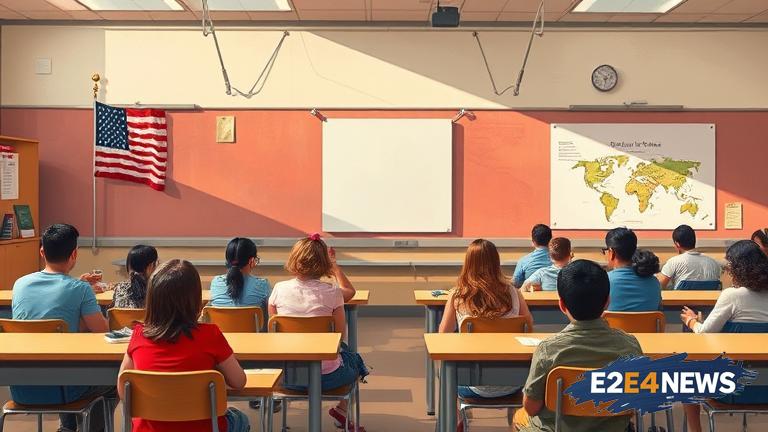In a recent statement, Arizona Superintendent Tom Horne stressed the significance of parental involvement in the state’s education system. Horne encouraged parents to familiarize themselves with their rights in the classroom, citing the need for transparency and accountability in schools. This move comes amidst growing concerns about the role of parents in their children’s education, with many arguing that they should have more say in what their kids are taught. Horne’s message is seen as a response to these concerns, aiming to empower parents to take a more active role in their children’s educational journey. The superintendent’s office has been working to provide parents with the necessary tools and information to navigate the education system effectively. This includes resources on how to access classroom materials, attend school board meetings, and engage with teachers and administrators. By knowing their rights, parents can better advocate for their children and ensure that they receive a high-quality education. Horne’s initiative has been met with support from many parents, who feel that their voices have been ignored or dismissed in the past. However, some critics argue that the superintendent’s approach may be overly broad, potentially leading to conflicts between parents and educators. Despite these concerns, Horne remains committed to promoting parental involvement, recognizing the critical role that parents play in their children’s educational success. The issue of parental rights in education has been a contentious one in Arizona, with debates surrounding topics such as curriculum content, school choice, and teacher accountability. Horne’s efforts aim to address these issues head-on, fostering a more collaborative and transparent relationship between parents, educators, and policymakers. As the state’s education system continues to evolve, the importance of parental involvement will only continue to grow. By empowering parents to take an active role in their children’s education, Horne hopes to create a more equitable and effective education system for all Arizona students. The superintendent’s office will continue to provide updates and resources on parental rights, ensuring that parents are equipped to navigate the complex education landscape. In addition to his work on parental rights, Horne has also been focused on improving student outcomes, increasing teacher pay, and expanding access to early childhood education. These initiatives are all part of a broader effort to strengthen Arizona’s education system, recognizing the critical role that education plays in the state’s economic and social development. As the state moves forward, it is likely that the issue of parental rights will remain a key area of focus, with Horne and other education leaders working to balance the needs and concerns of parents, educators, and students. The Arizona Department of Education has also launched a series of community outreach events, aimed at engaging parents and other stakeholders in the education conversation. These events provide a platform for parents to share their concerns, ask questions, and learn more about the education system. By listening to parents and responding to their concerns, Horne and his team hope to build trust and foster a more collaborative approach to education. The issue of parental rights is not unique to Arizona, with similar debates and concerns being raised in other states across the country. However, Horne’s approach has been notable for its emphasis on empowering parents and promoting transparency, recognizing the critical role that parents play in their children’s educational success. As the national conversation around education continues to evolve, it is likely that Arizona will remain at the forefront of efforts to promote parental involvement and improve student outcomes. In the coming months, the Arizona Department of Education will continue to work with parents, educators, and other stakeholders to address the complex challenges facing the state’s education system. By working together, these groups can help to create a more effective, equitable, and student-centered education system, one that prepares Arizona students for success in college, careers, and beyond.





